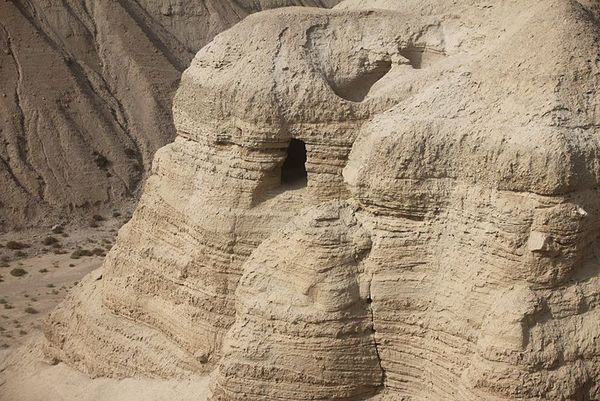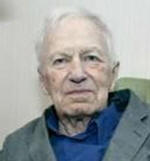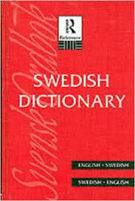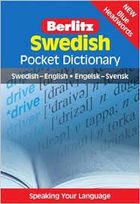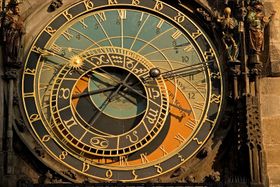Category:Qumran Studies--Swedish
|
QuS (Swedish) -- History of research -- Overview The first two-volume edition of the Dead Sea Scrolls in Swedish appeared in the 1950s edited by Bo Ivar Reicke (vol.1, 1952) and Helmer Ringgren (vol.2, 1956). Just before the discovery of the Dead Sea Scrolls, Reicke had published in 1946 a study on the relationship between the "Jewish Damascus Document" and the New Testament. Ringgren soon established himself as the leading Swedish specialist in the newly discovered Scrolls; in the 1950s, in collaboration with Inga Ringgren, he also made available the work of Millar Burrows in Swedish translation. In 1957 Krister Stendahl, then working as a professor at Harvard University, edited a fundamental volume of the relationship between the Dead Sea Scrolls and the New Testament, to which Bo Ivar Reicke also contributed. In 1961 Helmer Ringgren published a study of his own on the theology of the Scrolls, which was successfully translated into English in 1963. 1n 1964 a monograph on the Teacher of Righteousness by Per Wallendorff appeared in Swedish, while in 1965 Bertil E. Gärtner, then a professor in the United States at Princeton Theological Seminar, published in English his monograph on the Temple in Qumran and the New Testament. The interest in the Dead Sea Scrolls was revived in Sweden in the 1990s. A symposium was organized in Stockholm on 14 november 1994 by the Royal Academy of Letters, History and Antiquities; Tryggve Kronholm and Birger Olsson edited the proceedings in 1996. An expanded edition of Helmer Ringgren's book on the theology of the Dead Sea Scrolls appeared in 1995 with a new introduction by James H. Charlesworth. Two monographs on the Scrolls were published at the University of Uppsala, by [[]] in 1999 and [[]] in 2000. In 2002 the Nordic Network in Qumran Studies was established; two Swedish scholars Haken Bergtsson (Uppsala) and Hakan Ulfgard (Linkoping) were part of the Steering Committee. The annual symposia organized between 2003 and 2007 by the Nordic Network provided the opportunity to Swedish scholars to offer papers in conversation with international scholars. The final symposium was held in Uppsala in 2007. The Network also produced a collection of essays in English in 2009 (Northern Lights on the Dead Sea Scrolls) as well as a textbook (Treasure in Clay Jars), published in Danish, Finnish, Norwegian and Swedish. The dissertation by Cecilia Wassen, completed in 2005 at McMaster University, Canada, is yet another fruit of Swedish scholarship in the 2000s. The experience of the Nordic Network in Qumran Studies formally ended in 2007, but its legacy is still carried on by national projects. In Sweden a new translation of the Dead Sea Scrolls in Swedish, edited by Mikael Winnige, is currently in its final stages of completion at the University of Uppsala.
|
Cognate Fields (Swedish) Second Temple Studies -- Enochic Studies -- Apocalyptic Studies -- Qumran Studies -- OT Apocrypha Studies -- Wisdom Studies -- OT Pseudepigrapha Studies -- Hellenistic-Jewish Studies -- Philo Studies -- Josephus Studies -- Historical Jesus Studies -- Pauline Studies -- Johannine Studies -- Petrine Studies -- Gospels Studies -- Christian Origins Studies -- New Testament Studies -- Early Christian Studies -- Early Jewish Studies -- Early Islamic Studies -- Early Samaritan Studies -- Hebrew Bible Studies -//- Fiction (Swedish)
|
Pages in category "Qumran Studies--Swedish"
The following 10 pages are in this category, out of 10 total.
1
- Handskrifterna från Qumran I-III = The Dead Sea Scrolls I-III (1952 Reicke), book
- Handskrifterna från Qumran IV-V = The Dead Sea Scrolls IV-V (1956 Ringgren), book
- Skriftfynden vid Döda Havet = Dead Sea Scrolls (1957 Burrows / Ringgren), book (Swedish ed.)
- Dödahavsrullarna = The Dead Sea Scrolls (1959 Allegro / Davidson), book (Swedish ed.)
- Nya upptäckter om Dödahavsrullarna = More Light on the Dead Sea Scrolls (1959 Burrows / Ringgren), book (Swedish ed.)
- Tro och liv enligt Döda-havsrullarna (The Faith of Qumran: Theology of the Dead Sea Scrolls / 1961 Ringgren), book
- Rättfärdighetens lärare = The Teacher of Righteousness (1964 Wallendorff), book
- Dödahavsrullarna 101 frågor och svar = Responses on 101 Questions on the Dead Sea Scrolls (1994 Fitzmyer / Hörnlund), book (Swedish ed.)
- Qumranlitteraturen, fynden och forskningsresultaten (1996 Kronholm, Olsson), edited volume
